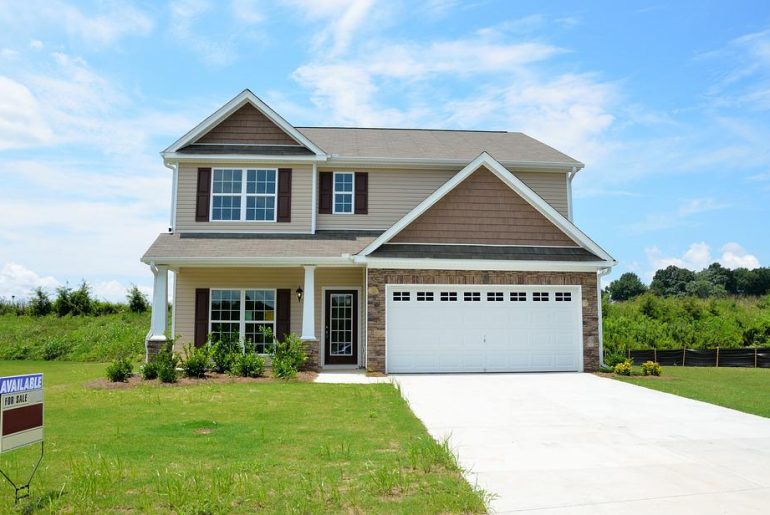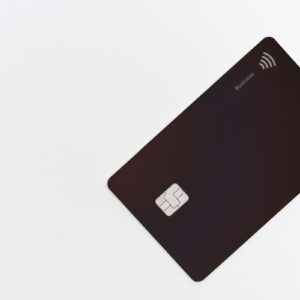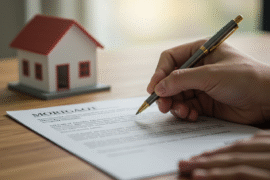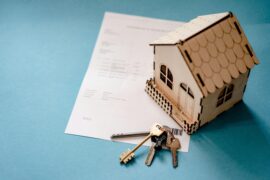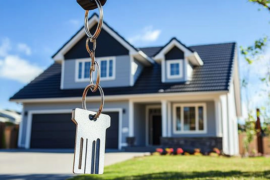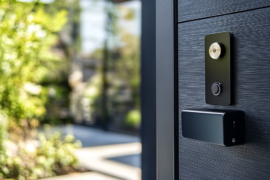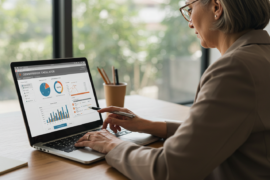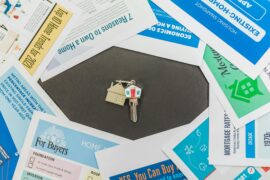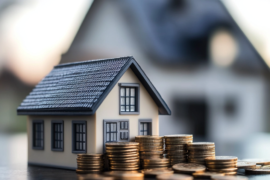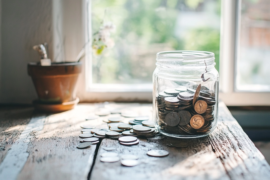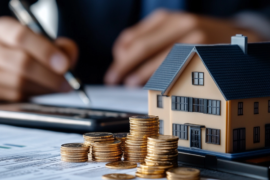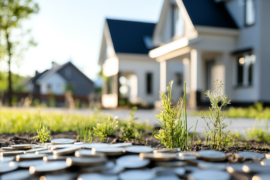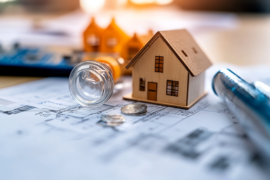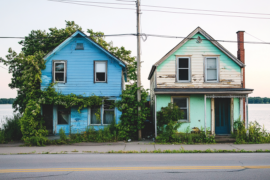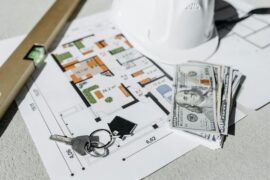This article may contain references to products or services from one or more of our advertisers or partners. We may receive compensation when you click on links to those products or services. Nonetheless, our opinions are our own.

Updated by Albert Fang
Purchasing a house for the first time is a daunting undertaking. You are probably already aware of this if you are reading this post. However, if you have somehow never bought a house before and do not know what to expect, this article will be here to help. We will also give tips on saving money throughout your life as it is finally time to buy your place. Your mortgage payment is not something that catastrophically eats away at all of your savings (or worse: forces you back into an apartment).
Understand What Type of Mortgage Works for You
Find a good mortgage broker who can help you and guide you through this process. In 2022, there will be more competition between different types of mortgages, so prices should fall even further as interest rates decrease to new lows. So instead of worrying about finding an efficient mortgage, think about finding someone who knows what they are doing. You may begin your search online or look for companies in your area. An experienced mortgage professional, like the ones at MLD Mortgage, can help you buy your first house with the finest and hassle-free mortgage procedure at a reasonable price and competitive interest rate.
Get Your Finances are in Order
It is crucial to have your finances in place before you buy a house. You need to make sure that you can afford the payment and that your credit score is good enough to get a mortgage.
When looking for a house, ask yourself how much you can spend on your monthly payment, and your income will go towards the mortgage. Your payments should not be above about 30% of what you earn each month. If it is, either you are not saving money, there will be not enough left over for utilities, food, or extra savings for emergencies.
In 2022, most people will need to put down at least 20% when buying a house. Some lenders may require up to 40%. You may also need money for closing costs and several months of payments on top of the down payment upfront to pay off the seller if something goes wrong with the transaction (like their bank decides they do not want their loan anymore).
Find out Government programs available, such as first-time home buyer tax credits or grants to help with closing costs or buying down interest rates on mortgage loans. You may also qualify for low-interest rate loans due to your education or employment status. Also, local programs give first-time home buyers discounts if they decide against selling their home through a realtor (for example).
Save for a Down Payment
If you are like most people, you probably do not have enough money to buy a house right now. If that is the case, do not worry, at least not yet. There are steps to take to ensure that you will be able to buy a house when the time is right, and they will all lay the groundwork for your future homeownership. The first thing you need to do is start saving as much as possible. Remember that this is not just the down payment cash; it will also need for other fees like closing costs, moving expenses, home repairs (big and small), property taxes, and insurance utilities. That could run into many thousands of dollars!
To help motivate yourself with your savings goals, set up an automatic transfer from your bank account each month so that you do not realize how much money is getting stashed away until one day—BAM! You have an extra $200–$300 sitting in your account every month! It feels great knowing you are on the path to becoming a homeowner one day.
Raise Your Credit Score
The housing market is in turnaround mode; home values have dropped most of the way before the Great Recession. As markets stabilize, we are witnessing a fresh round of foreclosures. We thought it was worth reviewing because new homeowners face similar situations as we did at their first homes. Buying property in 2022, you will probably want to apply the same strategies we used. Do not go into debt (especially high-interest debt!), pay your bills on time, keep credit card balances low, and avoid closing unused cards.
Find a Lender and Get Pre-Approved
Start by finding a lender accepted by your bank and pre-approved for you. The first step will be to get pre-approved with them. Potential lenders will offer this service for free, but your credit score needs to qualify. Pre-approval means they will do a background check on you and track down any red flags they see while doing their research.
Once approved, find an affordable home in your price range with all the amenities you need, especially if it also has an open floor plan. A modern kitchen is a key for cooking at home, having direct counter space for prep work on the stovetop or sink area. We cannot stress how important it is to have ample storage, do not end up stashing everything under the couch cushions when your spouse asks where that six-pack of beer went after another stressful day at work. And remember: getting pre-approved would not eradicate your hurdle, the fact that real estate prices are sure to keep going up over time!
Find a House You Can Afford
- Find a house you can afford that fits your needs.
- You need to be able to comfortably make the monthly payments, which means not overextending yourself. You do not want to find yourself in a situation where you have to move because of a financial circumstance that made it unbearable for you to continue living.
- Make sure the down payment is manageable, something you can afford, and SAVE UP!
- Additional expenses in addition to the mortgage include property taxes, homeowners’ insurance, maintenance, repairs, and improvements. They all differ significantly based on where you are in the country.
You will also have closing costs which are usually around 3%. They are paid upfront at the closing or settlement of your loan and cover things like origination fees and lender charges. These costs vary based on location, lending institution, loan type (fixed or adjustable), and talk with an expert who knows all the procedures and formalities!
Do Not Overlook Closing Costs
Your closing costs might be higher than you think. The average down payment for first-time buyers is roughly 18%. The overall cost of buying a house is rising due to an increase in interest rates. Buyers are still price shopping based on the loan amount alone. They don’t consider that their closing costs will take up 3% to 5% of their loan amount. It can be tough on first-time home buyers, who often only have enough savings for a small down payment.
Closing costs are all the things your lender charges you once the deal closes, including taxes and insurance related to property ownership and maintenance. The cost depends on where you live. In some areas of the US, such as New York City and the San Francisco Bay Area, there are lots of additional taxes, stamps, and other local fees that can add thousands of more dollars to your bill.
While this isn’t usually something that’ll keep you from getting approved for a mortgage loan (especially if you’re going with an FHA or VA loan), it is vital to know about these expenses before signing anything so that they don’t catch you off guard when it’s time to close.
Be Prepared When Buying Your First Home
Do not be afraid to start small when you buy your first home. In fact, in some cases, it can be a good idea to make that move on an even smaller budget. When we bought our first home, we made sure to keep our costs low and try not to spend too much money on the things that would end up being more expensive down the road
One of the best ways to do this is by keeping your mortgage loans small while still getting a large enough loan amount, so you do not have any issues qualifying for it. If you’re looking at buying a house in the next couple of years and considering making it your primary residence, putting down a low amount towards closing could help ensure that you purchase one that is within your price point and budget range.

Reviewed and edited by Albert Fang.
See a typo or want to suggest an edit/revision to the content? Use the comment form below for feedback.
At FangWallet, we value editorial integrity and open collaboration in curating quality content for readers to enjoy. Much appreciated for the assist.
Did you like our article and find it insightful? We encourage sharing the article link with family and friends to benefit as well - better yet, sharing on social media. Thank you for the support! 🍉
Article Title: Mortgage Tips for First-Time Home Buyers in 2023
https://fangwallet.com/2022/05/10/mortgage-tips-for-first-time-home-buyers-in-2022/?replytocom=11859The FangWallet Promise
FangWallet is an editorially independent resource - founded on breaking down challenging financial concepts for anyone to understand since 2014. While we adhere to editorial integrity, note that this post may contain references to products from our partners.
The FangWallet promise is always to have your best interest in mind and be transparent and honest about the financial picture.
Become an Insider

Subscribe to get a free daily budget planner printable to help get your money on track!
Make passive money the right way. No spam.
Editorial Disclaimer: The editorial content on this page is not provided by any of the companies mentioned. The opinions expressed here are the author's alone.
The content of this website is for informational purposes only and does not represent investment advice, or an offer or solicitation to buy or sell any security, investment, or product. Investors are encouraged to do their own due diligence, and, if necessary, consult professional advising before making any investment decisions. Investing involves a high degree of risk, and financial losses may occur including the potential loss of principal.
Source Citation References:
+ Inspo
